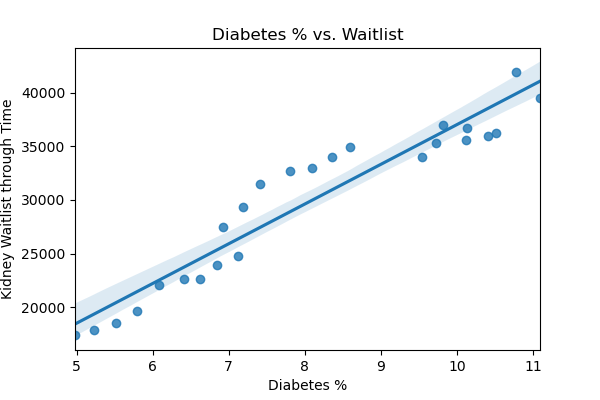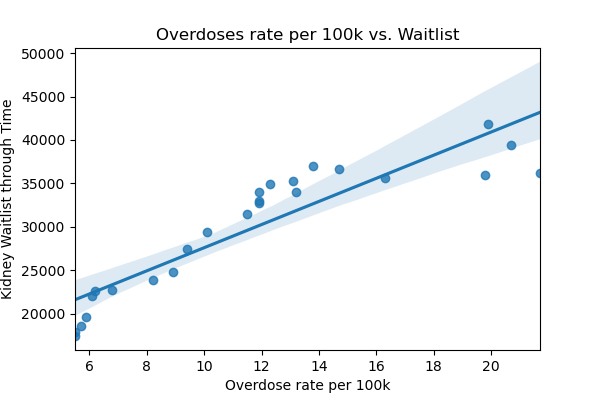National Projections

Diabetes
10-40% of the population with Type II Diabetes will experience renal failure. High glucose levels lead to high blood pressure, which damages the blood vessels in kidneys and as kidneys work harder to clean the blood, they quickly progress into kidney failure.

Obesity
Obesity increases the risk of developing major risk factors for chronic kidney disease (CKD), like diabetes and hypertension, and it has a direct impact on the development of CKD and end-stage renal disease (ESRD). The increase in intraglomerular pressure to meet the higher metabolic demands of an obese body can damage the kidney structure and raise the risk of developing CKD in the long term.

Opioid overdoses
Opioid overdoses can result in acute kidney injury (AKI) due to dehydration, hypotension, rhabdomyolysis, and urinary retention. Heroin-associated nephropathy (HAN) is a kidney disease associated with drug use, although it is unclear if it is due to the drugs themselves or due to increased incidence of HIV, Hep C, Hep B, and other communicable diseases that damage kidneys.



